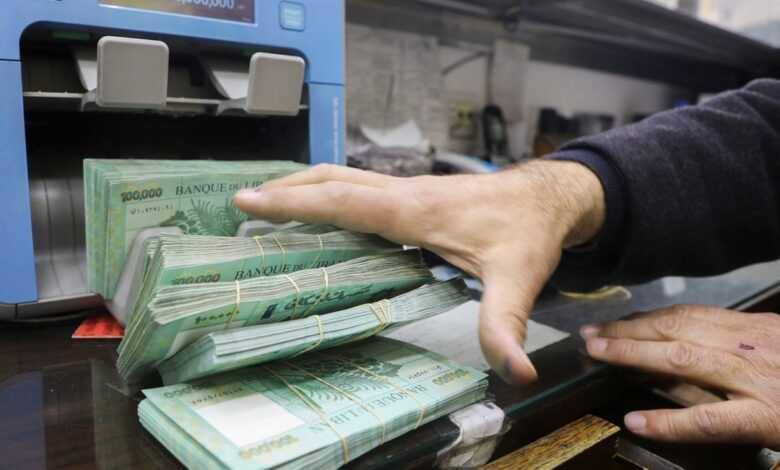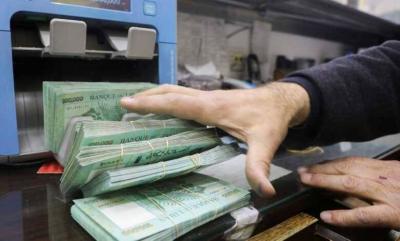The Indicator Committee approved yesterday to raise the transportation allowance for the private sector to 450,000 LBP, matching that of the public sector. However, the issue of wage adjustments remained in the realm of open discussions, which may become more effective when the war in Gaza comes to an end. The discussions had progressed to increasing the minimum wage in the private sector between the President of Economic Bodies, Mohammad Choucair, and the President of the General Labor Union, Bishara, but the security situation in the south hindered any positive conclusion.
The private sector, which had started to recover during a vibrant tourist season and stable exchange rates, regressed due to the escalation in the southern front, erasing all achieved growth indicators. Further complicating matters, maritime import and export operations have been severely disrupted due to developments in the Red Sea, alongside rising costs of insurance and shipping.
As a result, the discussions regarding wages have stalled, despite a push to raise the minimum wage to 20 million LBP. Yesterday’s official approval for the daily transportation allowance to increase to 450,000 LBP for the private sector was made during a meeting of the Indicator Committee held at the Ministry of Labor under Minister Mustafa Bayram, aimed at addressing the salaries, wages, and transportation allowances for private sector workers.
Following the meeting, Bayram stated that they heard from employers an economic report reflecting their impact from the situation resulting from the aggression on Gaza and the regional tensions arising from this conflict, as well as the ongoing attacks on Lebanon. The agreement was to set the daily transportation allowance for the private sector at 450,000 LBP, thereby equalizing it with the public sector. Regarding other matters, they listened to several proposals and ideas, which are valuable and warrant further discussion. Given the economic situation, the committee will resume meetings continuously to follow up on developments, with more effective outcomes expected once the aggressive war in Gaza ceases. Meetings will not be linked to any other factors but will occur at a consistent pace to engage in discussions and monitor workers' interests while considering business owners' interests, whose continuity is hoped for as it positively impacts the economy and benefits the Lebanese state.
In this context, Bishara Asmar, President of the General Labor Union, explained to "Al-Jumhouria" that prior to the Indicator Committee meeting, there were several dialogue sessions between the labor unions and the economic bodies that led to the agreement on the transportation allowance that was confirmed yesterday in the committee as an official solution, pending a decree to become effective. He noted that during yesterday's meeting, they conveyed the dialogue atmosphere from before the war in Gaza, during which there was an agreement on raising the minimum wage, which had made significant progress at that time, along with agreements on increasing the transportation allowance. However, the events in Gaza altered all assessments, driving the economic situation to worsened conditions following a lively tourist season marked by good activity in restaurants, hotels, and commerce, bringing billions into the country.
While discussions for wage increases were previously constructive, the war in Gaza reverted matters backwards, significantly reducing the volume of business in the private sector—a factor that halted wage discussions while conversations regarding the transportation allowance continued to rise, now exceeding 10 million LBP per month, placing it above the current minimum wage of 9 million LBP.
Asmar confirmed that discussions with the economic bodies regarding wage increases are ongoing in a manner acceptable to both parties; however, there will be a pause until suitable economic conditions are available. He mentioned that a large part of the private sector pays a small portion of employee salaries in Lebanese Lira reported to social security, while the majority pays in fresh dollar social assistance, which is not reported to social security. This could later reduce end-of-service indemnity for employees. It's no surprise that the state, the largest employer, resorts to providing increases under the term "social assistance" to avoid increasing obligations at the time of end-of-service benefits.
Currently, the public sector wage is still calculated based on an exchange rate of 1500 LBP to the dollar, with a recorded minimum of 900,000 LBP, while the minimum wage in the private sector stands at 9 million LBP. Asmar asserted that the gap between the two sectors will remain, although efforts are being made to reduce it. If we account for the social assistance that public sector employees receive monthly, their wages can reach around 9 million LBP or sometimes more.
Regarding proposed figures for the minimum wage, Asmar revealed that before the war, there were intentions to raise it to 20 million LBP in a way acceptable to both sides, supplemented with about 10 million LBP monthly for transportation allowances, and additional benefits such as schooling and family subsidies, raising the total to approximately 40 million LBP per month.




